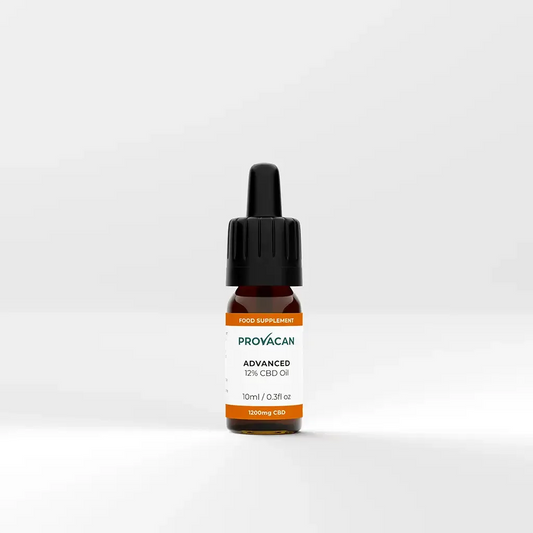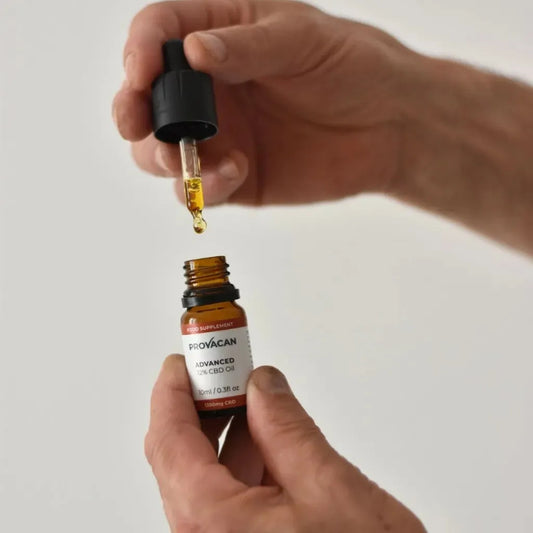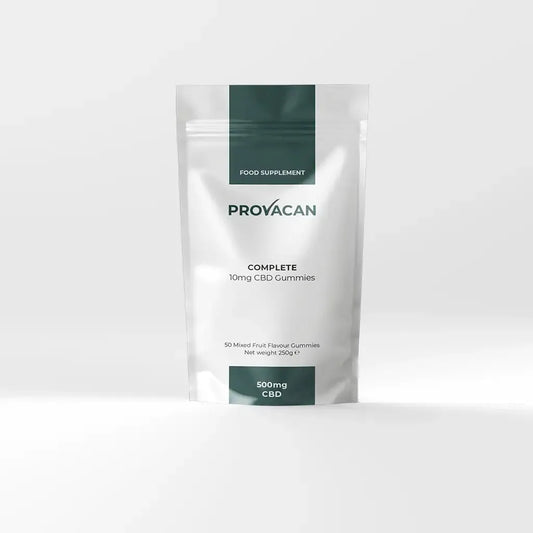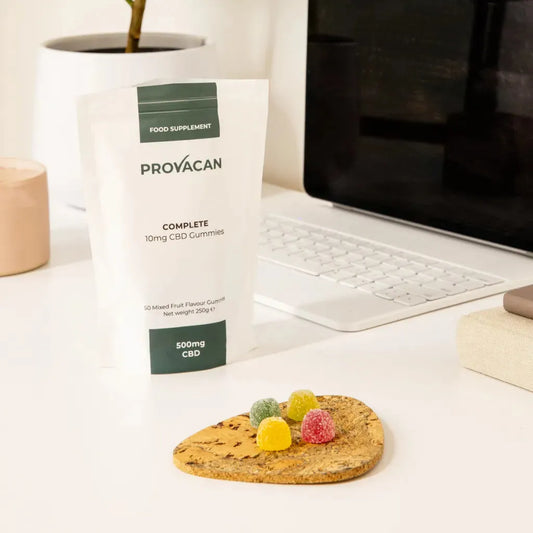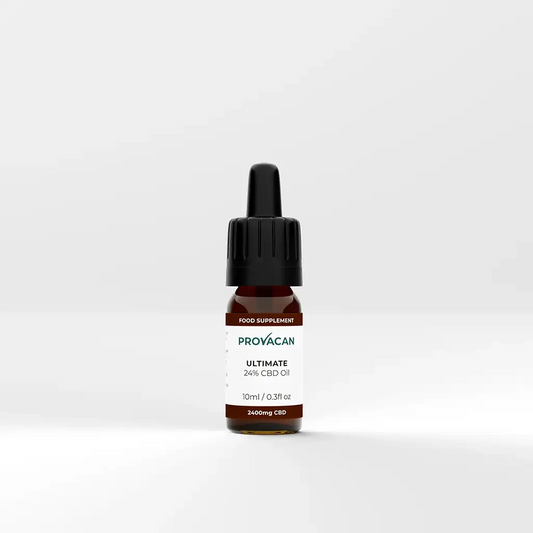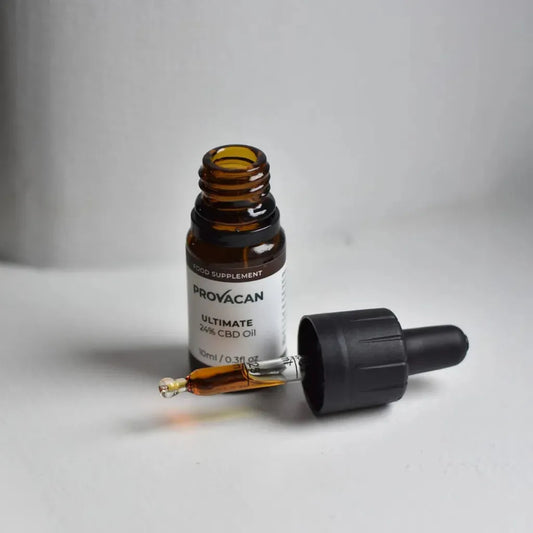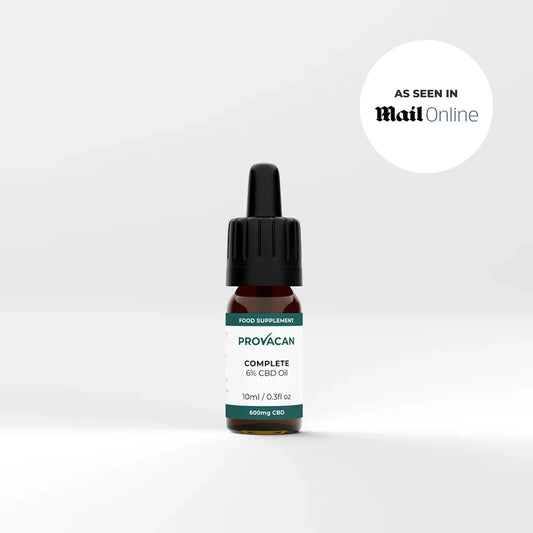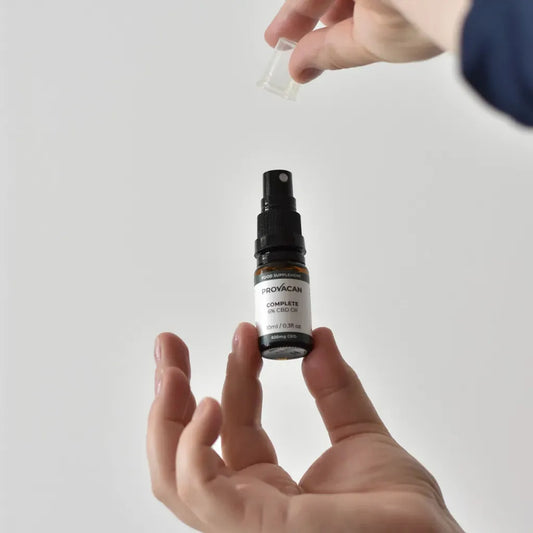Key takeaways:
- CBD is extracted from a plant: CBD is a natural, non-psychoactive compound extracted from the cannabis plant.
- CBD has a long list of potential benefits: From natural pain relief to skin care, research suggests that CBD may have the potential to treat a variety of conditions.
- Users have a variety of options: CBD is available in the form of gummies, oils, topicals, and more.
In recent years, CBD has gained immense popularity for its potential health benefits and therapeutic applications. Extracted from the cannabis plant, CBD is a non-psychoactive compound that has been studied for its various uses and effects on the human body. As more research is conducted, the list of potential benefits of CBD continues to grow, offering a natural alternative for those seeking relief from a wide range of ailments.
CBD is commonly used to alleviate symptoms associated with chronic pain, inflammation, anxiety, and sleep disorders. Its interaction with the endocannabinoid system, a complex network of receptors in the body, has shown promising results in promoting balance and overall well-being. From tinctures and edibles to topicals and capsules, there are numerous forms of CBD products available on the market to suit different preferences and needs.
In this article, we will explore the diverse applications of CBD and the options available for consumers looking to incorporate CBD into their wellness routine. Whether you are new to CBD or a seasoned user, understanding the potential benefits and various products can help you make informed decisions about how to best incorporate CBD into your daily life.
Understanding CBD and its sources
CBD can be extracted from different varieties of the cannabis plant, including hemp and marijuana. Hemp-derived CBD contains very low levels of THC, making it legal in many countries, including the UK. This type of CBD is commonly used in wellness products due to its non-intoxicating properties.
The extraction process plays a crucial role in determining the quality and potency of CBD products. High-quality CBD is typically extracted using advanced methods such as CO2 extraction, which ensures that the final product is free from harmful contaminants and maintains the full spectrum of beneficial compounds found in the plant.
When it comes to sourcing CBD products, it's important to choose reputable brands like Provacan that prioritise quality, purity, and transparency. Provacan's products are backed by scientific research and adhere to strict quality standards to ensure maximum effectiveness and safety for consumers.
Whether you're looking to alleviate discomfort, promote relaxation, or support your overall wellness, CBD offers a versatile and natural solution. By understanding the origins of CBD and selecting high-quality products from trusted sources, you can harness the potential benefits of this powerful compound for your well-being.
The science behind CBD and the human body
When consumed, CBD interacts with the body's endocannabinoid system, a complex network of receptors and neurotransmitters that plays a crucial role in regulating various physiological processes.
The endocannabinoid system, or ECS, is involved in maintaining homeostasis, which is the body's ability to maintain stable internal conditions despite external changes. CBD works by influencing the activity of endocannabinoid receptors, particularly CB1 and CB2 receptors, which are found throughout the body. By modulating the activity of these receptors, CBD may help regulate functions such as pain sensation, mood, memory, and immune response.
Research has shown that CBD may have anti-inflammatory, analgesic, anxiolytic, and neuroprotective properties. For example, studies suggest that CBD can help reduce inflammation by interacting with immune cells and inhibiting the production of inflammatory molecules. CBD's analgesic effects may be due to its ability to modulate pain perception pathways in the brain and spinal cord.
Furthermore, CBD has been investigated for its potential to alleviate symptoms of anxiety and depression. By interacting with serotonin receptors in the brain, CBD may help regulate mood and reduce feelings of stress and anxiety. Additionally, CBD's neuroprotective properties suggest that it may have implications for treating neurodegenerative diseases such as Alzheimer's and Parkinson's.
Therapeutic uses of CBD for anxiety and depression
CBD, or cannabidiol, has garnered significant attention for its potential therapeutic benefits in managing anxiety and depression. Research suggests that CBD may help alleviate symptoms associated with these common mental health conditions.
Anxiety
Numerous studies have highlighted CBD's ability to interact with serotonin receptors in the brain, which are crucial for regulating mood and emotions. By modulating the activity of these receptors, CBD may help reduce feelings of anxiety and promote a sense of calmness. Additionally, CBD has been shown to influence the endocannabinoid system, which plays a key role in regulating stress responses. This suggests that CBD may help individuals better cope with stressful situations and manage anxiety levels.
Depression
Individuals struggling with depression may also find potential benefits from using CBD. Research indicates that CBD may boost serotonin levels in the brain, similar to how selective serotonin reuptake inhibitors (SSRIs) work. Serotonin is a neurotransmitter known to play a vital role in mood regulation, and imbalances in serotonin levels have been linked to depression. By enhancing serotonin activity, CBD may help alleviate depressive symptoms and improve overall mood.
Furthermore, CBD's anti-inflammatory and neuroprotective properties could play a role in supporting brain health and potentially mitigating the impact of neurochemical imbalances associated with depression.
Pain management: how CBD can help
When it comes to pain management, CBD has gained significant attention for its potential benefits. One of the primary ways in which CBD can help with pain management is through its interaction with the endocannabinoid system in the body. The ECS plays a crucial role in regulating various functions like pain perception, immune responses, and inflammation. CBD interacts with the ECS receptors, helping to reduce pain and inflammation.
Numerous studies have shown promising results regarding the efficacy of CBD in managing chronic pain conditions such as arthritis, neuropathic pain, and fibromyalgia. Research suggests that CBD can alleviate pain by inhibiting the transmission of pain signals and reducing inflammation. Additionally, CBD may help improve sleep quality, which is essential for pain management and overall well-being.
Furthermore, CBD products come in various forms, such as oils, topicals, capsules, and edibles, offering flexibility in how individuals choose to incorporate CBD into their pain management routine. Topical CBD products can be directly applied to the affected area for localised relief, while CBD oils or edibles can provide systemic relief for overall pain management.
It is important to note that while CBD shows promise in pain management, individual responses may vary. Consulting with a healthcare professional is recommended to determine the appropriate CBD dosage and product type based on individual needs and health conditions.
Exploring CBD's role in treating sleep disorders
CBD has garnered significant attention for its potential role in treating sleep disorders. Sleep disorders can have a profound impact on overall well-being, affecting mood, cognitive function, and daily performance. Many individuals turn to CBD as a natural alternative to traditional sleep aids due to its purported calming and relaxing properties.
Research suggests that CBD may help improve sleep quality and duration by interacting with the body's endocannabinoid system, which plays a crucial role in regulating sleep-wake cycles. CBD is believed to influence the receptors involved in the sleep-wake cycle and may promote relaxation, reduce anxiety, and alleviate pain, all of which can contribute to better sleep.
It's important to note that while CBD shows promise as a potential treatment for sleep disorders, more clinical research is needed to fully understand its mechanisms and effectiveness. Additionally, individual responses to CBD may vary, and it's essential to consult with a healthcare provider before incorporating CBD into your sleep regimen, especially if you are taking other medications.
CBD and skin health: what you need to know
When it comes to CBD and skin health, the potential benefits are vast. One of the main ways CBD may benefit the skin is through its anti-inflammatory properties. Inflammation is a common underlying factor in many skin issues, including acne, eczema, and psoriasis. By reducing inflammation, CBD may help to calm irritated skin and reduce redness.
Furthermore, CBD is also known for its antioxidant properties. Antioxidants help to protect the skin from damage caused by free radicals, which can contribute to premature ageing and skin conditions. By incorporating CBD into your skincare routine, you may be able to shield your skin from environmental stressors and maintain a youthful appearance.
Another key benefit of CBD for skin health is its potential to regulate oil production. For individuals with oily skin or acne-prone skin, balancing oil production is essential for maintaining clear and healthy skin. CBD may help to regulate sebum production, potentially reducing the occurrence of breakouts.
Moreover, CBD has been shown to have moisturising properties that can help to keep the skin hydrated and supple. Proper hydration is crucial for maintaining skin health and elasticity, and CBD-infused products may offer an extra layer of moisture for a glowing complexion.
Comparing CBD with traditional medications
When it comes to exploring CBD's potential benefits, many consumers often wonder how it stacks up against traditional medications. It's essential to understand that CBD operates differently from conventional pharmaceuticals, offering a unique approach to wellness that is gaining momentum.
One key distinction lies in the way CBD interacts with the body. Unlike traditional medications that often target specific symptoms or conditions, CBD works with the body's endocannabinoid system to promote balance and homeostasis. This holistic approach is one reason why individuals are increasingly turning to CBD as a natural alternative to pharmaceuticals.
Additionally, CBD is known for its minimal side effects compared to many traditional medications, which can often come with a range of potential adverse reactions. While individual responses to CBD may vary, it is generally well-tolerated and considered safe for most users.
Another advantage of CBD is its versatility. From oils and tinctures to edibles, topicals, and capsules, there are numerous options for incorporating CBD into your daily routine. This variety allows consumers to choose the delivery method that best suits their preferences and lifestyles.
While traditional medications may target specific symptoms, CBD's multifaceted properties offer a more comprehensive approach to overall well-being.
Different forms of CBD
CBD comes in various forms, each offering unique benefits that cater to different preferences and needs. Here are some popular forms of CBD products.
CBD Oils
CBD oils are one of the most common ways to consume CBD. They are easy to use and come in various concentrations, making it simple to adjust your dosage. Simply place a few drops under your tongue for fast absorption.
CBD Topicals
Topical CBD products include creams, lotions, and balms that are applied directly to the skin. They are popular for targeting localised discomfort and promoting skin health without entering the bloodstream.
CBD Capsules
CBD capsules are a convenient option for those looking for a precise and consistent dose of CBD. They are easy to incorporate into your daily routine and offer a simple way to track your daily intake.
When choosing a CBD product, consider factors such as your desired dosage, preferred method of consumption, and specific wellness goals to find the form that best suits your needs.
Final thoughts
The diverse range of benefits and applications of CBD make it a versatile and popular option for individuals seeking natural wellness solutions. From managing chronic pain to reducing anxiety and promoting better sleep, CBD has shown promising results in numerous studies and testimonials from users. Whether you are looking for relief from physical discomfort or seeking to improve your mental well-being, CBD offers a holistic approach to health and wellness.
At Provacan, we are committed to your well-being and strive to provide the highest quality CBD products that are supported by scientific research and stringent quality standards. Our dedication to excellence ensures that each product is crafted with precision and care to deliver effective results that you can trust. By partnering with leading scientists and research bodies, we stay at the forefront of CBD innovation to provide you with the latest advancements in this rapidly evolving field.
As the UK's trusted leader in CBD innovation, Provacan is here to support your journey to optimal health and well-being. Whether you are new to CBD or a seasoned consumer, our products are designed to meet your unique needs and preferences. Experience the difference that premium quality CBD products can make in your life and discover the benefits of incorporating CBD into your daily wellness routine. Trust Provacan to deliver excellence, reliability, and effectiveness in every product we offer. Your wellbeing is our priority, and we are here to help you thrive with the power of CBD.
Read also:
Sources:
- Freeman, T. P., & Hall, W. (2023). Benefits and risks of cannabinoids. BMJ, 382, p2113. https://doi.org/10.1136/bmj.p2113
- Wang, L., Hong, P. J., May, C., Rehman, Y., Oparin, Y., Hong, C. J., Hong, B. Y., AminiLari, M., Gallo, L., Kaushal, A., Craigie, S., Couban, R. J., Kum, E., Shanthanna, H., Price, I., Upadhye, S., Ware, M. A., Campbell, F., Buchbinder, R., & Agoritsas, T. (2021). Medical cannabis or cannabinoids for chronic non-cancer and cancer related pain: a systematic review and meta-analysis of randomised clinical trials. BMJ, 374, n1034. https://doi.org/10.1136/bmj.n1034
- It is time to embrace cannabis for medicinal use, say experts | BMJ. (n.d.). https://www.bmj.com/company/newsroom/it-is-time-to-embrace-cannabis-for-medicinal-use-say-experts/




